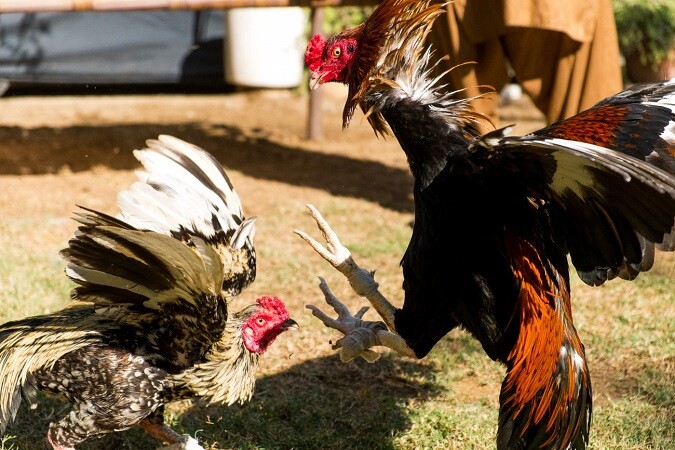

Every farmer looks forward to a healthy flock, however at times farmers have had an experience where their birds fight and peck at each other. Below are a few things you can do to stop it from happening. Keeping a peaceful flock requires interpreting behaviors to decipher what chickens are communicating. When chickens are spending more time in the pen, boredom can bring out changes in behavior, such as pecking.
Chickens are naturally inquisitive, but they don’t have arms and hands to inspect things. They use their beaks to explore instead. Pecking is a natural chicken behavior that allows them to check out their surroundings, including their flock mates. Though hen pecking is a natural occurrence, the nature of this behavior can change when birds spend more time inside.
Understanding the difference between curious and aggressive hen pecking is key to knowing when there is a problem. Not all pecking is bad. When it is gentle, this behavior is fun to watch. If pecking becomes aggressive, it can be problematic to other birds in the flock.
Explore on the reason as to why they are Pecking
If the hen pecking behavior becomes aggressive, first is to determine if something is causing birds to act out. Start by asking yourself these questions;
Are the hens too crowded? Do they ever run out of chicken feed or water? Are they too hot or cold? Is there a predator in the area? and Is there something outside of the coop that is causing them to be stressed?.
After the stressor has been identified, the next step is easy: remove the problem and the behavior may go away or diminish.To maintain this newfound peace, make sure your birds have a minimum of 4 square feet indoors and 10 square feet outdoors per bird. Adequate feeder and waterer space is also critical. If a new hen is added to the flock, there may be a period of uneasiness.
Note, there will always be some dominance in the flock as part of the pecking order. There are typically one or two boss hens who rule the roost. Once the pecking order is determined, the birds usually live together peacefully.
Ensure Cleanliness and Hygiene
The next step to prevent feather picking is to keep birds clean. Chickens take a different type of bath than you might expect. They often dig a shallow hole, loosen up all the dirt and then cover themselves in it. This process is called a dust bath. Dust bathing is an instinct that helps keep birds clean. Follow these steps to make dust baths;
– Find a container at least 12” deep, 15” wide and 24” long;
– Combine an equal blend of sand, wood ash, and natural soil;
– Watch your birds roll around in the bath and clean themselves.
Dust baths can also prevent external parasites such as mites and lice. If external parasites are an issue, supplement your birds’ dust bath with a cup or two of food-grade diatomaceous earth. If you add diatomaceous earth, be sure to mix it in well. Diatomaceous earth can be harmful if inhaled in large amounts. By mixing the diatomaceous earth into the dust bath, it has less probability to become airborne while still helping prevent external parasites.
Offer an alternative place for birds to peck
Next, provide your birds with something to keep their minds busy. Perhaps the most fun of it all is to find toys for chickens that bring out their natural instincts. Interactive objects can make the chicken coop more complex and exciting. Logs, sturdy branches or chicken swings are a few flock favorites. These ‘toys’ provide unique retreats for hens who may be lower in the pecking order. Farming is fun and cool if done with the right mind and attitude.
 Contact Jaguza Support
Contact Jaguza Support